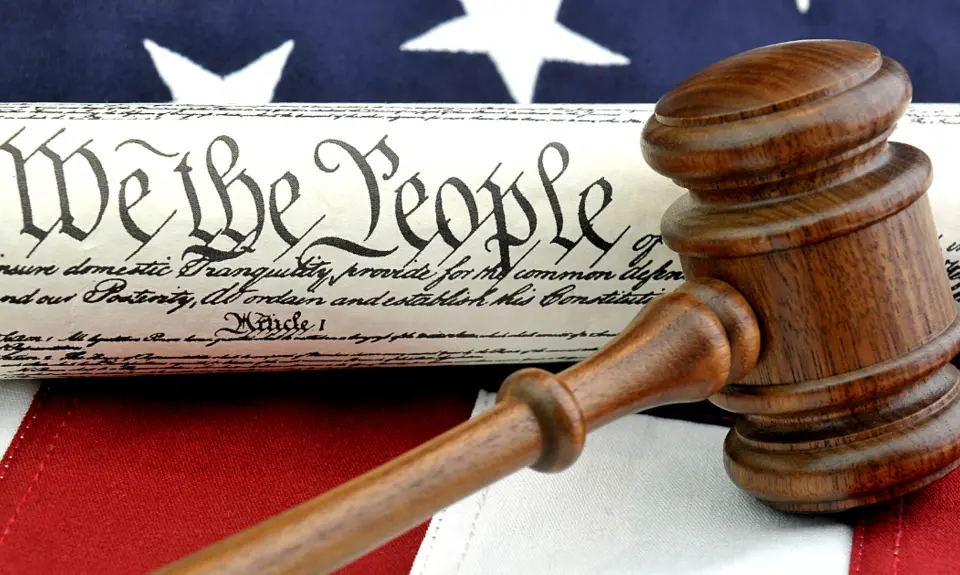“Confirmed Judges, Confirmed Fears” is a blog series documenting the harmful impact of President Trump’s judges on Americans began to ’ rights and liberties. It includes judges nominated in both his first and second terms.
Trump judges Neomi Rao and Greg Katsas issued a 2-1 ruling that stayed a lower court decision and allowed the White House to exclude the Associated Press (AP) from press events in the Oval Office, on Air Force One, and in Mar-a-Lago because the AP continues to use the term “Gulf of Mexico” to describe the area that the President prefers to call the “Gulf of America.” Judge Cornelia Pillard strongly dissented from this viewpoint discrimination in the June 2025 decision in Associated Press v Budowich.
What happened in this case?
In February 2025, White House officials excluded the AP from press events in restricted spaces in the Oval Office, on Air Force One, and at the President’s residence in Mar-a-Lago, where the AP had previously been. The admitted reason was viewpoint-based discrimination – that is, because the President was displeased that AP “continued to use the name Gulf of Mexico” to describe the area that the President preferred be called the “Gulf of America.”
The AP filed suit on First Amendment grounds. A district court judge nominated by Trump, Trevor McFadden, ruled that the AP was likely to succeed and issued a preliminary injunction prohibiting White House officials from denying AP access to press events “on the basis of viewpoint.” The White House appealed to the DC Circuit.
How did Trump judges Rao and Katsas rule and why is the result harmful?
Rao and Katsas issued a 2-1 decision that stayed the preliminary injunction pending outcome of the appeal and made clear that the White House can exclude AP from press events in the Oval Office, on Air Force One, and at Mar-a-Lago. These Trump judges claimed that the White House is “likely to succeed” on the merits of the case because these presidential spaces “are not First Amendment fora” and the President retains “discretion” to decide which journalists will be admitted, “including on the basis of viewpoint.” Accordingly, they went on, the injunction improperly “impinges on the President’s independence and control over his private workspaces.”
Judge Cornelia Pillard strongly dissented. Based on a careful analysis of past practice and precedent, she determined that the panel’s ruling contradicts “longstanding First Amendment precedent, multiple generations of White House practice and tradition,” and “any sensible understanding of the role of a free press in our constitutional democracy.” It clearly violates the Fist Amendment, she went on, for the White House to punish journalists “for the viewpoints they express with their own time and resources.” Public officials “inevitably disagree with publicly expressed views” of journalists who cover them, she wrote. “Until now,” Pillard stated, “every United States president has had the fortitude to tolerate the presence” in the White House of “credentialed journalists known to disagree with one or more government-preferred viewpoints.” As she concluded, the “First Amendment demands no less.”
The ruling by Trump judges Rao and Katsas not only harms AP but also seriously damages the protection afforded by the First Amendment to the free press under the Trump Administration. The exclusion of the AP will continue until and unless Trump changes his mind or a contrary decision is ultimately reached on the merits of this case. The decision also illustrates the importance of our federal courts to health, welfare and justice and the significance of having fair-minded judges on the federal bench.
